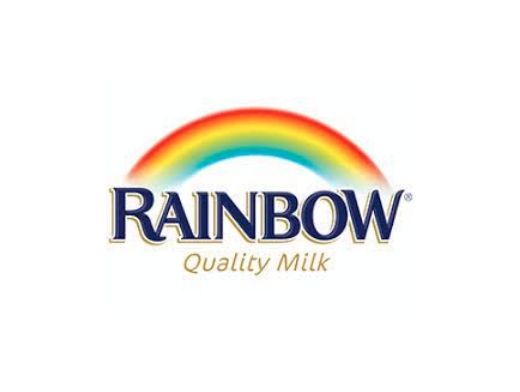The United Kingdom boasts a rich and thriving film industry, renowned for its creativity, innovation, and significant contributions to global cinema. At the helm of this industry are film producers, the orchestrators who transform scripts into screen-ready masterpieces.
A film producer’s role is multifaceted and crucial, encompassing everything from project inception to the final cut. They are the visionaries who bring together the cast, crew, and resources, ensuring a seamless production process. If you aspire to join their ranks, this comprehensive guide will chart your path to becoming a successful film producer in the UK.
Understanding the Role of a Film Producer
At its core, a film producer is responsible for overseeing and managing the production of a film. Their duties span the entire production lifecycle, including:
Development: Sourcing and developing scripts or concepts.
Pre-production: Securing financing, assembling the production team, and planning logistics.
Production: Supervising the daily operations on set.
Post-production: Overseeing editing, sound design, and special effects.
Distribution: Organising marketing and distribution strategies.
Types of Film Producers
The title "film producer" can refer to various roles within the production hierarchy, each with distinct responsibilities:
Executive Producer: Often responsible for securing financial backing and overseeing top-level production aspects.
Line Producer: Manages the day-to-day operations and logistics of the film set.
Associate Producer: Provides support in various production areas, often focused on specific tasks or departments.
Each type of producer plays a critical role in ensuring the film's successful completion, working collaboratively to bring the project to life.
Essential Qualities and Skills You Need to Become a Successful Film Producer
To excel as a film producer, certain qualities and skills are paramount. Here are the 8 qualities and skills you'll need to become a film producer:
Leadership
A successful producer must lead and inspire a diverse team, from directors and actors to technical crew members. Strong leadership ensures a unified vision and smooth workflow.
Creativity
Producers need a keen creative vision to develop compelling stories and make artistic decisions that enhance the film’s quality.
Financial Acumen
An understanding of budgeting, financing, and cost management is critical. Producers often make financial decisions that impact the entire production.
Problem-Solving
Film production is fraught with challenges. Quick decision-making and innovative problem-solving are essential to navigate unforeseen issues.
Communication
Excellent verbal and written communication skills are needed to articulate ideas, negotiate deals, and liaise with stakeholders. Ensure you use the correct letter format to make a strong first impression in writing, and employ a professional vocabulary in your speeches.
Networking
Building and maintaining industry connections can open doors to new opportunities and resources. Networking is essential for career growth.
Organisational Skills
Efficient project management and scheduling ensure that the production stays on track and on budget.
Adaptability
The dynamic nature of film production requires flexibility and the ability to adapt to changing circumstances.
What Degrees are Required to Become a Producer?
Pursuing a relevant degree can provide foundational knowledge and skills. Consider courses in Film Production, Media Studies, or Business.
Notable UK Film Schools and Institutions
The UK is home to prestigious film schools that offer specialised training:
National Film and Television School (NFTS)
London Film School (LFS)
University of the Arts London (UAL)
Importance of Workshops and Short Courses
Workshops and short courses offer practical experience and insights into specific areas of film production. They are ideal for continual learning and skill enhancement.
Career Development: Acquiring Experience
Begin by securing internships or entry-level positions in film production companies. These roles provide hands-on experience and industry exposure. Additionally, participating in student films, short films, and indie projects will help you build your portfolio and gain practical experience.
Don't forget that volunteering at film festivals and events can broaden your network and provide insight into the industry's operational side.
How to Build a Strong Professional Network as a Producer?
Networking is vital in the film industry. Connections can lead to collaborations, funding opportunities, and career advancements.
Attend film festivals, join film societies, and engage in online communities to meet professionals and expand your network.
Seek out mentorship from established producers who can provide guidance, advice, and valuable industry insights.
Understanding the Business Side in the Industry
To thrive as a producer, it's crucial to comprehend the financial, legal, and strategic aspects of the film industry.
Basics of Film Financing and Budgeting
Learn the fundamentals of film financing and budgeting to manage production costs effectively. Accurate budgeting is crucial for allocating resources, controlling expenses, and ensuring the project stays on track.
Key elements include estimating costs for pre-production, production, and post-production phases, securing funding from investors, grants, and sponsorships, and maintaining a contingency fund for unexpected expenses.
Understanding Contracts, Rights, and Legal Aspects
Familiarise yourself with contracts, intellectual property rights, and legal considerations to protect your work and interests. This includes drafting and negotiating contracts for cast, crew, and vendors, securing rights for music, scripts, and other creative content, and understanding distribution agreements.
Ensuring compliance with legal aspects helps mitigate risks and safeguard your project's integrity.
Importance of Marketing and Distribution Strategies
Develop marketing and distribution strategies to ensure your film reaches its audience and achieves commercial success. Effective marketing entails creating buzz through social media, press releases, and promotional events, while distribution addresses the various channels through which your film can be viewed, such as theatrical releases, streaming platforms, and DVD sales.
A well-planned strategy maximises visibility, attracts viewers, and enhances revenue potential.
What Are the Common Challenges Faced by Movie Producers?
As a movie producer, you will likely encounter certain challenges throughout the production process. Some of these common challenges include:
Limited Budget
Film productions can be expensive and securing enough funding to cover all aspects of the project is a common challenge for producers. This often requires careful budgeting and finding creative ways to stretch resources.
Managing Conflicting Opinions
Producing a film involves working with various individuals, such as directors, writers, and actors, who may have different opinions on how the movie should be made. It can be challenging to balance these differing perspectives and make decisions that are in the best interest of the project.
Creative Differences
Along with conflicting opinions, there may also be creative differences among team members. This could lead to disagreements on the direction of the film, which can slow down production or cause tension within the team.
Tight Deadlines
Film productions often have tight deadlines to meet, especially when dealing with release dates and distribution agreements. This can put pressure on producers to ensure everything stays on track and is completed within the given timeframe.
Unforeseen Obstacles
No matter how well-planned a production may be, there are always unforeseen obstacles that may arise. These could include last-minute location changes, equipment malfunctions, or unexpected weather conditions. Producers must be adaptable and able to find solutions quickly to keep the project moving forward.
For more insights into the film industry, here are the 10 most common myths of video marketing.
Conclusion
Becoming a successful film producer in the UK requires dedication, passion, and a diverse skill set. By understanding the role, acquiring the necessary education and experience, building a strong network, and staying updated with industry trends, you can pave your way to a fulfilling career in film production. Remember, persistence and a genuine love for storytelling are your greatest assets. Stay passionate, keep learning, and your journey to success will be as captivating as the films you produce.











































